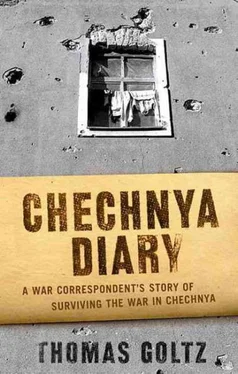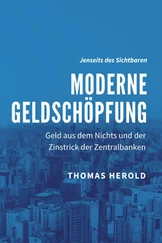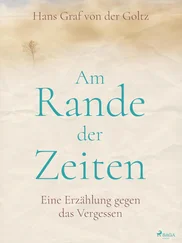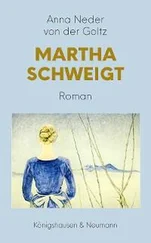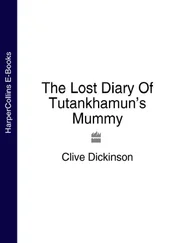Those were the days. In the evening, I did what everyone else around me did: sat around Alkhazur’s living room drinking endless cups of tea and chain-smoking cigarettes before wandering back through the blackened, muddy streets to Hussein’s place to sleep. The nightly hammering of outlying positions made the windows rattle and shake as if the explosions were next door. After a few days, one got used to the nocturnal barrage and the racket became almost indistinguishable—or at least no more disturbing—than the snoring of the other men in the room.
Yes, after a few weeks, Samashki had become a normal town for me, filled with very normal people, people with histories, names, and even foibles. Imperceptibly at first, but with every day more so, I began shifting my focus away from war and in the direction of local humanity. I filmed farmers planting crops and children trying to study, even though there was no school. I got to be palsy with the ladies in the bazaar, and made a point to never miss communal prayers in the mosque and the inevitable discussion groups that would follow. And I began to think differently about my project. If Thornton Wilder could make a classic play out of the very complacency of a Grovers’ Corners, could I not do the same for Samashki, and make a real-life Chechen version of Our Town? It would be slow, as far as television goes—but it would be different, something deep.
Still, I was obliged to protectively position myself in case the Russian military finally decided to fulfill its frequent vow to flatten the place. That meant that after fearful days on the periphery with Hussein and his men and fascinating evenings with the just-folks in Alkhazur’s coffee shop, my nights usually consisted of waiting on a rooftop in anticipation of recording the death of the very same people who had been keeping me in food, housing, and companionship, and the destruction of the town— our town.
That might sound dramatic and awful and cynical, and it is, but the dynamic was more complex than that. The men I was with had accepted me into their lives so that I might be able to report on their activities in the largest sense. A tacit part of our contract was that I would probably have to record very real violence when it was visited upon them. The only way to draw attention to Samashki, and thus somehow impact American or world public opinion to move or persuade or force Moscow to cease and desist in the slaughter in Chechnya, would be to deliver visuals that were sufficiently dramatic to make viewers sit up and shout “No! No! NO!”
So long as the journalist can continue to believe that his or her reporting might indeed have that sort of impact or result—changing the world—the implicit contradictions and dangers of his or her situation are sustainable. The problem arises when one begins to understand that one is risking one’s own life—and by extension the lives of those around him—not so much to edify or enlighten, but to entertain .
Ghoulish? Yes. Realistic? Absolutely: This is exactly the sort of thing that producers describe as “great TV.”
And what is to be learned from such a sequence?
That people still believe in that totally contradictory principle that motivates rebels all over the world, namely, that they are willing to die in order to be free—and are quite happy to do it on television?
This book has taken me almost a decade to write because it has been so painful to remember and because it is about so many things: the Samashki massacre, Hussein, Chechnya, Russia, ethnicity, war, journalism, modern voyeuristic adventure, love, hate, betrayal, forgiveness, and a host of other subjects. But there are certain things this book is not . It is not, for example, a history of Chechnya, Russia, the Caucasus, or Soviet nationalities policy—although for the sake of context, I have included what I hope is a sufficient amount of information about all those subjects to serve as a potpourri Guide for the Perplexed.
What this book is , I hope, is an account of a confused and unhappy time in one human history, largely defined by but not restricted to the conflict as experienced in one small town in the self-styled Chechen Republic during its bid for independence from the post-Soviet Russian Federation, and as seen through the foggy lens of an imperfect outlander recorder who just happened to show up at that time and place.
My contact with Hussein has led me to ask a number of uncomfortable questions for myself and others involved in journalism, especially in areas and times of war and crisis. The main question might be: What responsibility does a journalist have to his or her subject? Are journalists perfectly neutral vessels who only see and record? Or does their very presence at critical moments make people act differently than they would have had the journalist not been there at all? What happens when the story becomes something more than that—when it becomes life? When does the observer affect the observed?
Thomas Goltz 2003 Livingston, Montana
“ Walk slowly and just say ‘Da’ whenever I ask you anything—got it?”
“Da,” I said.
Isa, my guide and companion for the last two hours, looked at me and chuckled. “Are you scared already?” he asked.
“Da,” I replied truthfully. “But, in fact, I am only following your instructions.”
Isa’s cheeks jiggled and his large belly heaved as he suppressed a chuckle. “Hehehe!” he tittered, trying to hold his breath. It was actually not such a good joke, and hardly the opportune moment to enjoy it, even if it had been. We were halfway up the Baku-Rostov highway to the Zalota Most , or Golden Bridge, which we were going to cross illegally on our way to Chechnya at war. I was numb from a mixture of cold, fear, and several sleepless nights thinking about what I was about to do, but was determined to do it anyway.
It was February 1995, and the bridge represented the sole border post on the Azerbaijani-Russian frontier, and it was a bundle of contradictions. For starters, it had been officially closed a month before, when Moscow accused Baku of turning a blind eye to Chechen fighters and their supporters crossing on their way to Chechnya. And yet the bridge remained unofficially open. One reason was the fact that while the frontier in question was internationally recognized as that delineating the boundaries of Azerbaijan and the Russian Federation, that particular part of the Russian Federation was Dagestan, a sort of sub-republic, or state, populated by a crazy quilt of mainly non-Russian (and almost exclusively Muslim) ethnicities, including many Chechens and Azeris. Their views about the Russian-Chechen conflict were quite different from those held by Boris Yeltsin and his advisors. While the latter thought it the most obvious place to intercept men and munitions on their way to Chechnya, the former were determined to keep the bridge open as an artery of supply.
Actually, the real reason the officially closed bridge and border remained unofficially open was more basic then the call of ethnic or religious solidarity. It had to do with cash.
“How are you feeling?” whispered Isa, when our communal taxi pulled off at the roadside shrine to Khidhir, the Muslim patron saint of sailors, travelers, and lost causes. It was the first time, for security purposes, that we had spoken since leaving Baku.
“Normalno,” I replied, shivering in the damp, Caspian winter chill. “Okay.”
“Don’t worry,” hissed Isa. “We have it wired. Wired! The name says it all— Zalota Most , the ‘Golden Bridge.’”
Читать дальше
